Filter by

Social Media in Trinidad
Drawing on 15 months of ethnographic research in one of the most under-developed regions in the Caribbean island of Trinidad, this book describes the uses and consequences of social media for its residents. Jolynna Sinanan argues that this semi-urban town is a place in-between: somewhere city dwellers look down on and villagers look up to. The complex identity of the town is expressed through u…
- Edition
- -
- ISBN/ISSN
- 9781787350939
- Collation
- -
- Series Title
- -
- Call Number
- 301 SIN s
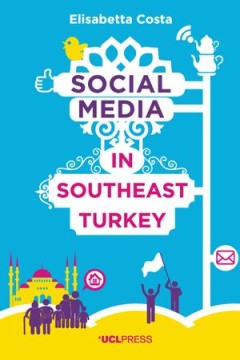
Social Media in Southeast Turkey
This book presents an ethnographic study of social media in Mardin, a medium-sized town located in the Kurdish region of Turkey. The town is inhabited mainly by Sunni Muslim Arabs and Kurds, and has been transformed in recent years by urbanisation, neoliberalism and political events. Elisabetta Costa uses her 15 months of ethnographic research to explain why public-facing social media is more c…
- Edition
- -
- ISBN/ISSN
- 9781910634547
- Collation
- -
- Series Title
- -
- Call Number
- 301 COS s
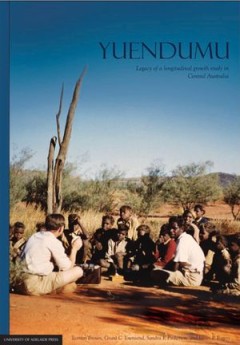
Yuendumu: Legacy of a Longitudinal Growth Study in Central Australia
This book provides a comprehensive account of a unique pioneering longitudinal study of human growth that continues to contribute to our knowledge and raise new questions 60 years after it commenced. Although over 200 scientific publications have arisen from the study, this book describes, in a single volume, the key researchers involved, the Australian Aboriginal people from Yuendumu who parti…
- Edition
- -
- ISBN/ISSN
- 9780987073006
- Collation
- -
- Series Title
- -
- Call Number
- 993 YUE y
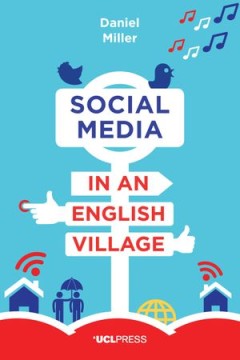
Social Media in an English Village
Daniel Miller spent 18 months undertaking an ethnographic study with the residents of an English village, tracking their use of the different social media platforms. Following his study, he argues that a focus on platforms such as Facebook, Twitter and Instagram does little to explain what we post on social media. Instead, the key to understanding how people in an English village use social med…
- Edition
- -
- ISBN/ISSN
- 9781910634448
- Collation
- -
- Series Title
- -
- Call Number
- 301 MIL s
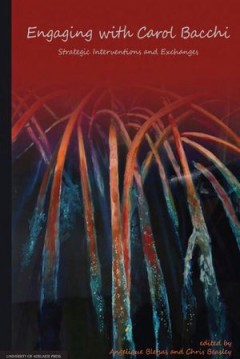
Engaging with Carol Bacchi: Strategic Interventions and Exchanges
This book illuminates, commemorates, and builds upon Bacchi’s ‘WPR’ approach. It outlines the trajectory of the development of the ‘WPR’ approach from Bacchi’s early engagements with feminist thinking, as an academic in scholarly environments which were often the preserve of men, towards the theoretical sophistication of an approach which requires an ongoing critical assessment of a…
- Edition
- -
- ISBN/ISSN
- 9780987171856
- Collation
- -
- Series Title
- -
- Call Number
- 305.4 ENG e

Emotions, Senses, Spaces: Ethnographic Engagements and Intersections
This volume draws together three core concerns for the social sciences: the senses and embodiment, emotions, and space and place. The chapters engage with intersections between space, sense and emotion through a range of experiences and activities including dance, bullfights, healing ceremonies, celebrations and music. The authors herein critically examine diverse contexts, in and through which…
- Edition
- -
- ISBN/ISSN
- 9781925261271
- Collation
- -
- Series Title
- -
- Call Number
- 300 EMO e
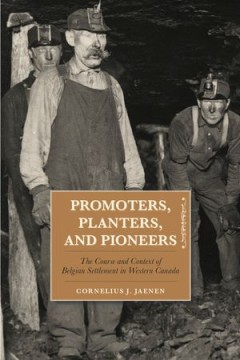
Promoters, Planters, and Pioneers: The Course and Context of Belgian Settleme…
In this comprehensive study of Belgian settlement in western Canada, Cornelius Jaenen shows that Belgian immigration was unique in its character and brought with it significant benefits out of proportion to its comparatively small numbers. Canadas first Immigration Act (1869) included Belgium among the “preferred countries” from which immigrants should be sought, but unlike many other Europ…
- Edition
- -
- ISBN/ISSN
- 9781552385708
- Collation
- -
- Series Title
- -
- Call Number
- 971 JAE p

Systematics 2008 - Programme And Abstracts
The Göttingen conference „Systematics 2008“ is the first joint meeting of the Gesellschaft für Biologische Systematik (GfBS) and the German Botanical Society, section Biodiversity and Evolutionary Biology (DBG), being the 10th Annual Meeting of the GfBS and the 18th International Symposium „Biodiversity and Evolutionary Biology“ of the DBG. The conference programme covers biological s…
- Edition
- -
- ISBN/ISSN
- 9783940344236
- Collation
- -
- Series Title
- -
- Call Number
- -

"Spongy, Slimy, Cosy & More" - Commemorative Volume In Celebration Of The 60t…
This volume contains papers presented in part at a symposium held in May 2012 at Göttingen University, to honour Professor Joachim Reitner for his numerous contributions to the fields of geobiology, geology, and palaeontology. Our present volume reflects the breadth of Reitner’s interests and accomplishement with tributes and research or review papers by his students, former students, collab…
- Edition
- -
- ISBN/ISSN
- 9783863951658
- Collation
- -
- Series Title
- -
- Call Number
- -

The Pacific Challenge - Development Trends In The 21st Century
The enormous leaps of growth and development experienced by Eastern and Southeast Asian states since the 1960s on account of their astonishing industrial development have led to concerns that a resulting global economic and political shift might favour the »Pacific region« at the expense of the »Atlantic region«. A »Pacific century« was proclaimed, in which it was predicted that Asian-Pac…
- Edition
- -
- ISBN/ISSN
- 9783938616109
- Collation
- -
- Series Title
- -
- Call Number
- -
 Computer Science, Information & General Works
Computer Science, Information & General Works  Philosophy & Psychology
Philosophy & Psychology  Religion
Religion  Social Sciences
Social Sciences  Language
Language  Pure Science
Pure Science  Applied Sciences
Applied Sciences  Art & Recreation
Art & Recreation  Literature
Literature  History & Geography
History & Geography